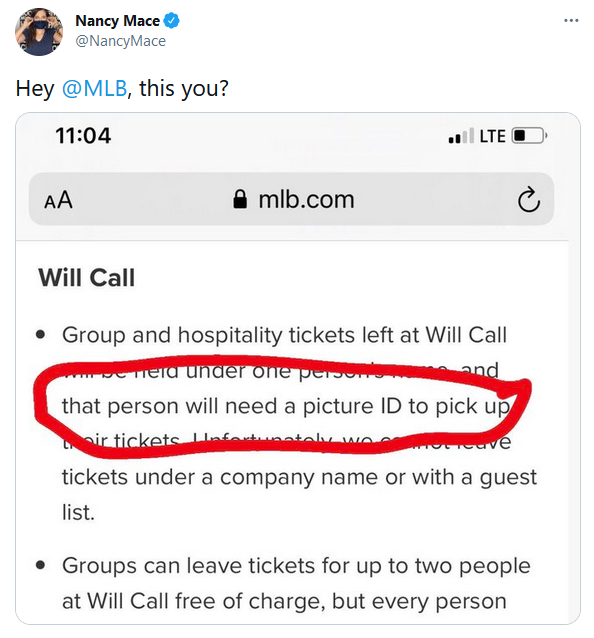Here are two.
Major League Baseball responded to calls to boycott the state of Georgia over a controversial new voter-ID law by moving the All-Star game out of the Peach State.
But teams still requires fans to show photo ID to pick up their tickets from the Will Call booth.
Congresswoman Nancy Mace (R, SC) showed an example of MLB’s dishonesty (she was too polite to be as blunt as me): Of course, MLB management, so far, has shied away from answering multiple requests for an explanation of its photo ID policy for ticket retrieval.
Of course, MLB management, so far, has shied away from answering multiple requests for an explanation of its photo ID policy for ticket retrieval.
Here’s another example [emphasis added].
Coca-Cola has released a statement condemning Georgia’s new voting legislation, but the company requires valid ID to be admitted to its annual meeting of shareholders.
“At the entrance to the meeting, we will verify your registration and request to see your admission ticket and a valid form of photo identification, such as a driver’s license or passport,” the company wrote in reference to its 2020 annual meeting of shareholders, held before the coronavirus pandemic.
That example illustrates even greater dishonesty—shareholder meetings are all about voting. Coca-Cola demands photo IDs for its voting, but the company demands no such identification be allowed for our nation’s voting.
In my view (where have I heard that phrasing before?) it’s impossible to do any further business with these enterprises until there is a broad and deep turnover of the persons sitting in management chairs. They’re too dishonest, and how can we trust the integrity of their products and services as long as the management teams running their productions are so dishonest?
